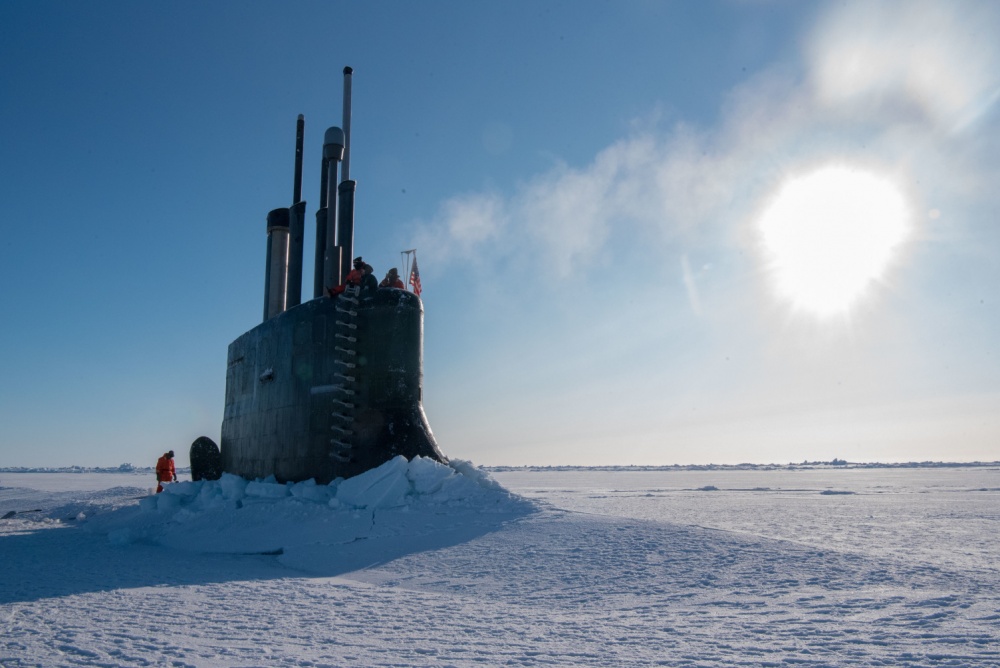Scare tactics on sea treaty put US Arctic interests at risk
Staunchly refusing to ratify the UN Convention on the Law of the Sea gives the United States less, not more, of a say in what happens in the Arctic.

Not that it will change anything, but Canada has given the United States another good reason to abandon its outlier status and approve the United Nations Convention on the Law of the Sea.
By filing its landmark Arctic submission with the UN, Canada has taken the first step to win international recognition for the theory that its territory includes 463,000 square miles (1.2 million sq km) on the extended continental shelf.
“Defining our continental shelf is vital to ensuring our sovereignty and to serving the interests of all people, including Indigenous peoples, in the Arctic,” Chrystia Freeland, Canada’s foreign minister, said of the decision.
The same logic of defining and defending sovereignty can be applied for the continental shelf off the Alaska coast, but the U.S. has never officially approved the treaty because of opposition within the Republican Party.
[How Canada’s UN submission will (eventually) draw some of the last lines on its map]
The U.S. has long accepted most of the treaty provisions, but it would be in a much stronger position legally and politically if it were a formal partner, joining 167 countries and the European Union.
A wide variety of businesses, environmental organizations and political groups in the U.S. continue to support adoption of the treaty, but it requires a two-thirds vote in the U.S. Senate, and therein lies the problem.
The most conservative elements in the Republican Party have raised false claims that the treaty is a power grab by the United Nations.
Alaska, which has 8 percent of the circumference of the Arctic, has much more to gain than to lose from this treaty, and Alaska’s political leaders should not be contributing to the scare tactics.
[Like Denmark and Russia, Canada says its extended continental shelf includes the North Pole]
The late Sen. Ted Stevens said in a Senate hearing in 2004 that he had opposed the agreement early on, but it had been modified to protect American fishing and mining rights. “I and my state now support the ratification of this treaty,” Stevens said.
Sen. Lisa Murkowski joined him in backing the treaty, and that support continued during the tenure of former Sen. Mark Begich.
The logic behind the treaty was also obvious at one time to Dan Sullivan, who served as assistant secretary on economic matters under President George W. Bush.
Sullivan had it right in 2008 when he said Senate approval would put the nation “in the best position to maximize the legal certainty and international recognition” of expanded U.S. jurisdiction off the coast of Alaska.
“The other countries bordering the Arctic Ocean, which are all parties to the convention, are busy maximizing the international recognition of their extended continental shelves beyond 200 nautical miles from their shores,” Sullivan told a subcommittee of the House Committee on Foreign Affairs.
[Russia to present shelf expansion bid next month]
On other occasions he said the treaty would help answer boundary question and that Murkowski was doing the right thing to promote approval of the agreement.
But Sullivan changed course when he ran for the U.S. Senate in 2014, attacking the treaty he had once praised. The political calculation was pretty clear.
Sullivan’s most conservative competitor for the Senate had attacked both Sullivan and Lt. Gov. Mead Treadwell for supporting a “naked power grab by our would-be global governors at the United Nations.”
Sullivan based his newfound opposition to the treaty on claims that it would increase taxes on American entities.
[Nome eyes a significant port expansion — but critics wonder if it will be enough]
When Sullivan served in the State Department, John B. Bellinger III, a legal adviser to the National Security Council, said the tax argument and other claims put forward as reasons for rejection were inaccurate, outdated and incomplete.
“The more outlandish arguments against the convention include allegations that the convention authorizes a ‘UN Navy’ or ‘UN taxes,’ that under the convention the United Nations would control the world’s oceans, that joining would hinder U.S. intelligence activities or forfeit U.S. ‘sovereignty.’ None of these claims are accurate, yet critics have somehow managed to present them as plausible,” Bellinger said.
“The charge that the convention robs the U.S. of ‘sovereignty’ is particularly perplexing because far from ceding U.S. sovereignty, the convention in fact reflects an enormous transfer of sovereignty and resources to the United States,” Bellinger said.
[Amid increasingly aggressive geopolitical rhetoric, the US Coast Guard seeks peaceful cooperation]
Steve Haycox, a retired University of Alaska Anchorage history professor, wrote in 2018 that opposition to the treaty “seems mostly ideological,” while proponents have practical arguments on their side: The treaty could give the U.S. more credibility and strengthen its claims in the Arctic.
U.S. military leaders agree. “By not being a party, the United States is not on the inside to protect and advance its interests, and risks losing the convention’s benefits the longer it remains a non-party,” Lt. Gen. David Berger, the new commandant of the U.S. Marine Corps, told the Senate this spring.
Dermot Cole can be reached at [email protected].